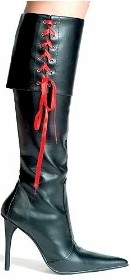- the effects and influences of the
POLITICAL ENVIRONMENT

| DUMPING
- the effects and influences of the POLITICAL ENVIRONMENT |
 |
changes
last made to this page 2014 July 23
| COMMENT | Dumping is like the term
terrorism
- if they are an asset of the United States, they are "Freedom Fighters", - if they are against the United States, they are "Terrorists". Dumping is the term when
it happens to you, ....
It is a sensitive issue and virtually every one of the OECD member countries does it. The main motivation of politicians is to get re-elected. Many politicians have to support legislation that will allow them to get re-elected. A number of business sectors and industries, such as dairy products, clothing, steel, wood products, etc. have all been involved in dumping and these are sectors in which a lot of votes can be won or lost by the politician vulnerable to that business in her/his constituency. WTGR |
| CBSA | Canadian
Government Agencies involved in Dumping: Canada Border
Services Agency
As explained on their website
www.cbsa-asfc.gc.ca
|
| CBSA | Canada
Border Services Agency
CBSA used to be part of Revenue Canada - which was formerly called Canada Customs and Revenue Agency. CBSA is the Canadian government
agency that will investigate if countries are shipping products into Canada
and selling them at a price which is lower than in their host country -
the definition of dumping. After completing and investigation, CBSA then
has the option of laying a tariff against certain products so that the
foreign exporters can't continue to "dump" them in Canada and cause a bad
competitive circumstance for Canadian manufacturers.
"With a workforce of approximately 12,000 public servants, CBSA provides services at approximately 1,200 points across Canada and 39 locations abroad. We administer more than 90 acts and regulations on behalf of other federal departments and agencies, and international agreements." |
| CBSA
and a DUMPING investigation Bicycles |
In Sept 2004
CBSA Canada Border Services Agency concluded an anti-dumping re-investigation
concerning certain bicycles and bicycle frames imported from China (PRC)
and Taiwan (ROC).
"As reported on www.newswire.ca
The Canada Border Services Agency (CBSA)
WTGR |
 |
In Feb 2005
CBSA Canada Border Services Agency concluded an anti-dumping re-investigation
concerning women's leather boots imported from China (PRC).
details www.cbsa-asfc.gc.ca/E/pub/cm/cn607/cn607-e.html from the CBSA site
|
 |
In March
2009 CBSA Canada Border Services Agency concluded an anti-dumping investigation
concerning Aluminum Imports
The complaint was filed by Almag Aluminum, Apel Extrusions, Can Art Aluminum Extrusion, Metra Aluminum, Signature Aluminum Canada, Spectra Aluminum Products and Spectra Anodizing, claiming they had suffered injury as result of dumped and subsidized imports of aluminum extrusions from China. from the CBSA site
On the Chinese side, their media outlets say "China's Ministry of Commerce (MOC) expressed strong protest against Canada's decision on anti-dumping duty rates and countervailing duty rates of aluminum extrusion imported from China" http://en.cbichina.com/Common/1974268,0,0,0,1.htm |
| KEY
POINTS |
Why is it useful to know
these details from CBSA cases?
If you were a business manager involved in the clothing business and part of your product line included women's footwear - including some from China, you should be aware that you will be forced to make a high increase to your retail price based on the countervailing tariff being applied. The consequence of this CBSA decision will then effect your marketing promotional activities since you will have to consider how your advertising will handle the effects of a high price increase. WTGR |
| "U.S. Turns Up Heat in Trade
War"
by Peter Morton 2002 Sept 17 |
The subtitle for Morton's
article was
"Farmer Group Demands
US$ 100 million in duties on dumped Canadian Wheat"
 |
"The North Dakota Wheat Commission over the weekend (2002 Sept 13-14) asked the U.S. Commerce Department to hit Canadian durum and spring wheat with duties between 23.7% and 37.5%, and complained that a record amount of the grain was sold by the wheat board in the United States last year." |
| KEY
POINTS |
How will this play out ?
- it is effected a lot by the "political environment".
Depends on who are the elected members of congress that represent the districts in North Dakota, and how influential are the Senators from North Dakota; and, on the other side, it depends on how much the Liberals in Ottawa want to appease the farmers in Alberta. The farmers in Alberta have traditionally voted for the Conservative party, or the Reform party - the Liberals (in mid-2002) can easily get re-elected based on their popularity in Quebec and Ontario so they might be willing to go to far against the Americans for an issue that will not result in re-elected Liberals - on the other hand, it depends if the Liberals consider this a regional issue or a national issue. WTGR |
.
|
|
CONTACT I MAIN PAGE I NEWS GALLERY I E-BIZ SHORTCUTS I INT'L BIZ SHORTCUTS I MKTG&BUSINESS SHORTCUTS I TEACHING SCHEDULE |
| . | |
| MISTAKES ITEXTS USED I IMAGES I RANK IDISCLAIMER I STUDENT CONTRIBUTORS I FORMER STUDENTS I | |
| . |